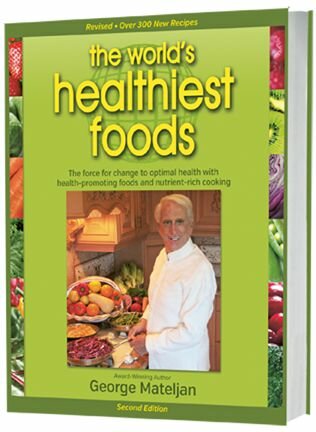 The World's Healthiest Foods are health-promoting foods that can change your life.
The World's Healthiest Foods are health-promoting foods that can change your life.
Try our exciting new WHFoods Meal Plan.
 The World's Healthiest Foods are health-promoting foods that can change your life.
The World's Healthiest Foods are health-promoting foods that can change your life.
Try our exciting new WHFoods Meal Plan.
Yes, even though whole grains make a far better food choice than refined grains, you can still experience an unwanted reaction to them. The proteins in wheat and other grains play an important role in most adverse reactions, and these proteins are not removed when the grains are processed. In addition, other components of grains not removed during processing may contribute to unwanted reactions.
You can read many conflicting opinions about grains and problems with grain consumption. From a research standpoint, an estimated 2-6% of the U.S. population has been estimated to have gluten sensitivity, and a somewhat lower percentage is estimated to have wheat allergy. While these percentages are sometimes disputed, adults in the U.S. average about 6 ounces of wheat flour intake per day, and processed wheat consumption far exceeds the number of documented wheat allergy or gluten sensitivity cases in research studies. We would expect many more reports of wheat and gluten-related reactions given the high volume of wheat intake in the U.S. population. And we would also note here that even though estimates of unwanted reactions to wheat are relatively low from a percentage standpoint, wheat has still been ranked by the U.S. Food and Drug Administration (FDA) as one of the eight major food allergens in the United States and the FDA includes wheat as a required named components on all packaged foods due to allergy risk.
At WHFoods, we believe that an equally important question about wheat, grains, and unwanted reactions is whether wheat and other grains have a favorableimpact on a person's health. In other words, even if wheat and grains do not trigger unwanted reactions, are they helping a person to achieve optimal health and nourishment?
Without question, whole grains have a far better chance to promote optimal health than processed grains. (This principle holds true for every food group and not just grains.) From our perspective at WHFoods, intake of whole grains is also easier to regulate in terms of amount. Whole grains require more chewing and can also bring more pleasure from chewing than refined grains, and, for these reasons, can help prevent us from overeating. Their higher fiber content also helps steady their passage through our digestive tract, and this steady passage also helps to balance our appetite.
And if we take the idea of "unwanted reactions" in its most general sense, we can also say that intake of refined grains might be likely to cause unwanted reactions in the sense of supplying us with too many calories and too few nutrients and leaving our metabolism with too little nutrient support. And sometimes the toll that refined grain products can take on our health involves the type of foods that are made with refined grains, for example, cookies, doughnuts and pastries. We see intake of whole grains as a way to help offset many of these problems, even though whole grains might still be an inappropriate choice for persons with unwanted reactions to them.
To see the research articles we reviewed in the writing of these articles, see here.

Everything you want to know about healthy eating and cooking from our new book.

Order this Incredible 2nd Edition at the same low price of $39.95 and also get 2 FREE gifts valued at $51.95. Read more